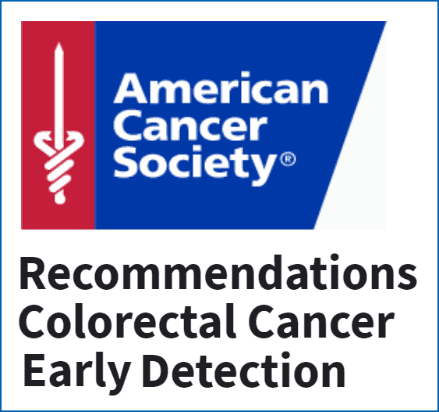American Cancer Society Recommendations for Colorectal Cancer Early Detection
The American Cancer Society creates guidelines for the prevention and early detection of cancer, including colorectal cancer, as well as guidelines for screening and surveillance for individuals at increased or high risk of the disease.
The ACS’s 2008 recommendations were issued in a joint guideline, Screening and Surveillance for the Early Detection of Colorectal Cancer and Adenomatous Polyps, 2008: A Joint Guideline from the American Cancer Society, the US Multi-Society Task Force on Colorectal Cancer, and the American College of Radiology. They recommend adults at average risk for the disease begin screening starting at age 50 with a menu of screening options. The recommendations provide benefits and limitations associated with each test to aid in making an informed decision. The webpage also includes additional links to tools and resources for patients and clinicians.
Evaluation: The guidelines were developed in collaboration with experts from the American Cancer Society, the US Multi Society Task Force on Colorectal Cancer, and the American College of Radiology. Learn more in the Guidelines Development, Methods, And Framework section of the joint guideline. This recommendation statement was also published in the peer-reviewed journal CA: A Cancer Journal for Clinicians.
Permissions: Made publicly available online by the American Cancer Society.
Publication date: 2008
Post date: September 15, 2017
Contact: Submit comments, questions, and suggestions via web form.
Explore More

Increasing Colorectal Cancer Screening in Rural Communities: A Practical Guide
This guidebook is designed to support key community partners in understanding and overcoming the unique challenges and common barriers to CRC screening faced in rural communities.

American Cancer Society: A Colorectal Cancer Screening Guide for Cancer Coalitions
This new guide from the American Cancer Society will help build your coalition's capacity to address colorectal cancer screening.

Clinician’s Reference: Stool-Based Tests for Colorectal Cancer Screening
This revised resource is designed to introduce (or reintroduce) clinicians to the value of stool-based testing for colorectal cancer.
